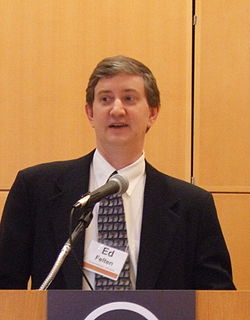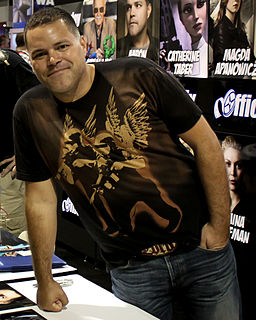A Quote by Alexandra Elbakyan
Sci-Hub always intended to be legal, and advocated for the copyright law to be repealed or changed, so that it will not prohibit the development of science.
Related Quotes
Providing free access to research papers on websites like Sci-Hub breaks so-called copyright law that was made to taboo free distribution of information on the Internet. That includes music, movies, documentaries, books, and research articles. Not everyone agrees that copyright law should exist in the first place.
I think that whether I can be a Russian spy is being investigated by U.S. government since they learned about Sci-Hub, because that is very logical: a Russian project, that uses university accounts to access some information, of course that is suspicious. But in fact Sci-Hub has always been my personal enterprise.
Copyright law has got to give up its obsession with 'the copy.' The law should not regulate 'copies' or 'modern reproductions' on their own. It should instead regulate uses--like public distributions of copies of copyrighted work--that connect directly to the economic incentive copyright law was intended to foster.
I think the reality is that copyright law has for a very long time been a tiny little part of American jurisprudence, far removed from traditional First Amendment jurisprudence, and that made sense before the Internet. Now there is an unavoidable link between First Amendment interests and the scope of copyright law. The legal system is recognizing for the first time the extraordinary expanse of copyright regulation and its regulation of ordinary free-speech activities.
The primary objective of copyright is not to reward the labor of authors, but ‘[t]o promote the Progress of Science and useful Arts.' To this end, copyright assures authors the right to their original expression, but encourages others to build freely upon the ideas and information conveyed by a work. This result is neither unfair nor unfortunate. It is the means by which copyright advances the progress of science and art.
It requires but a very small glance of thought to perceive, that although laws made in one generation often continue in force through succeeding generations, yet that they continue to derive their force from the consent of the living. A law not repealed continues in force, not because it cannot be repealed, but because it is not repealed; and the non repealing passes for consent.






























